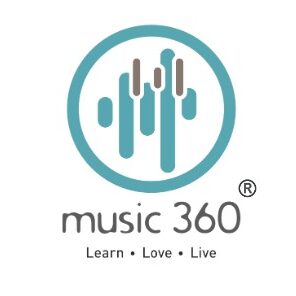Table Conteent
Introduction
Introduction
Music education has been shown to have a number of benefits, including improved cognitive function, creativity, and social skills. Why is music education so important?
Unleashing the Power of Music: Unveiling the Significance of Music Education
Music, the universal language that transcends boundaries and unites souls, has long been a cornerstone of human expression and cultural enrichment. From the soothing melodies of lullabies to the electrifying rhythms of rock anthems, music has the power to evoke emotions, inspire creativity, and foster a deeper understanding of the world around us. While music appreciation is a natural human inclination, music education plays an instrumental role in nurturing and developing musical talent and understanding
Cultivating Cognitive Development
Contrary to popular perception, music education is not merely a pastime or a means of entertainment. It is a powerful tool for cognitive development, providing a comprehensive platform for intellectual growth and holistic learning. Studies have consistently demonstrated that music education enhances cognitive abilities such as memory, attention, and problem-solving skills.
Enhancing Memory and Attention
Music’s inherent structure and rhythmic patterns engage the brain’s memory centers, strengthening neural connections and improving the ability to retain information. The act of learning and performing music stimulates the hippocampus, a crucial region of the brain responsible for memory formation. Additionally, the rhythmic nature of music enhances focus and concentration, enabling individuals to maintain attention and filter out distractions.
Fostering Problem-Solving Skills
Music education presents a unique blend of creativity and discipline, requiring individuals to analyze complex patterns, decipher symbols, and make informed decisions within a structured framework. This process of interpreting and executing musical pieces cultivates critical thinking skills, problem-solving strategies, and the ability to adapt to new situations.
Promoting Language and Literacy Development
The linguistic components of music, such as song lyrics and musical terminology, play a significant role in language development. Exposure to a rich vocabulary and exposure to different grammatical structures through music enhances language comprehension and expression skills. Additionally, the rhythmic patterns and melodic phrases of music can aid in phonological awareness, a crucial foundation for reading and writing proficiency.
Nurturing Creativity and Emotional Intelligence
Music education provides a fertile ground for creativity and self-expression. The process of improvisation, composition, and performance allows individuals to explore their musical ideas, experiment with different sounds and techniques, and develop a unique musical voice. This creative outlet fosters self-confidence, self-awareness, and the ability to communicate emotions effectively.
Promoting Social-Emotional Well-being
Music education extends its benefits beyond cognitive development, positively impacting social-emotional well-being. Participation in music ensembles and group performances cultivates a sense of community, collaboration, and teamwork. Music also serves as a powerful tool for self-expression and emotional regulation, allowing individuals to process emotions, manage stress, and develop resilience.
Enriching Cultural Understanding
Music education provides a window into diverse cultures around the world, exposing individuals to different musical traditions, instruments, and styles. This exposure fosters cultural understanding, appreciation, and tolerance, promoting a more inclusive and interconnected global society.
Music Education: A Lifelong Journey
The benefits of music education extend far beyond the classroom, enriching lives throughout the lifespan. Music can provide a source of relaxation, inspiration, and intellectual stimulation in all stages of life. Whether it’s a lullaby to soothe an infant, a motivational soundtrack to fuel a workout, or a comforting melody to accompany a senior’s reflection, music remains a constant companion and source of joy.
Conclusion: A Symphony of Benefits
Music education, with its multifaceted benefits and profound impact on cognitive, social, and emotional development, stands as a cornerstone of holistic education. By nurturing musical talent, fostering creativity, and promoting cultural understanding, music education empowers individuals to become well-rounded, engaged, and contributing members of society. As we embrace the transformative power of music, we pave the way for a world enriched by creativity, harmony, and the universal language of music.

